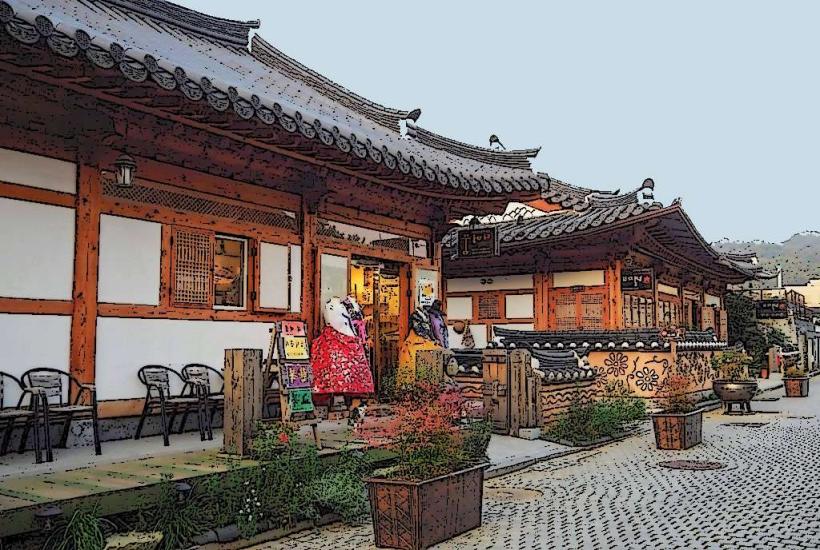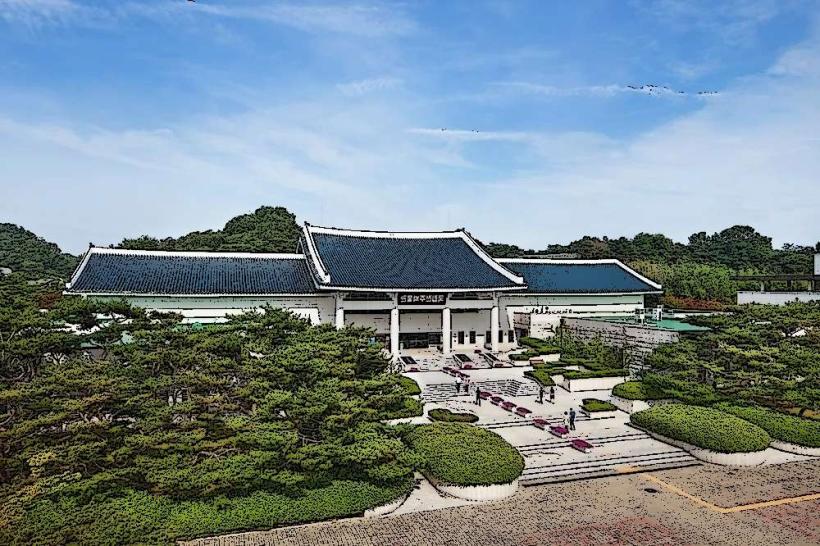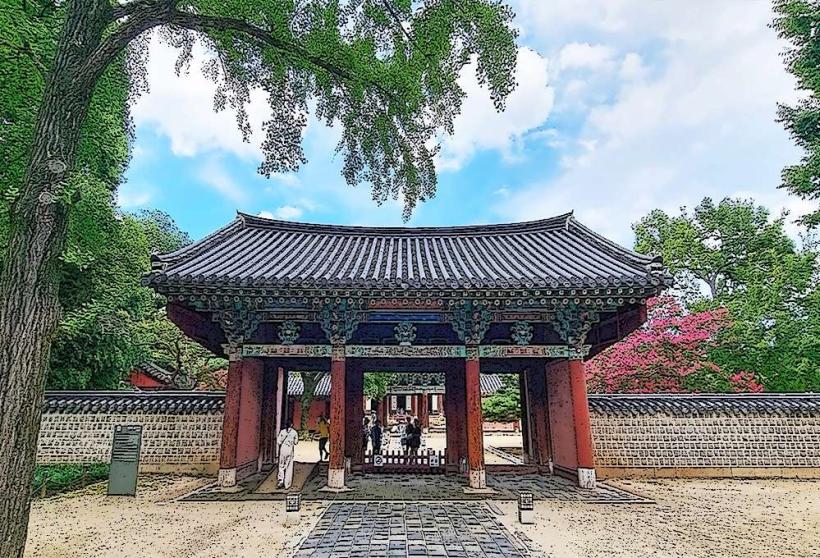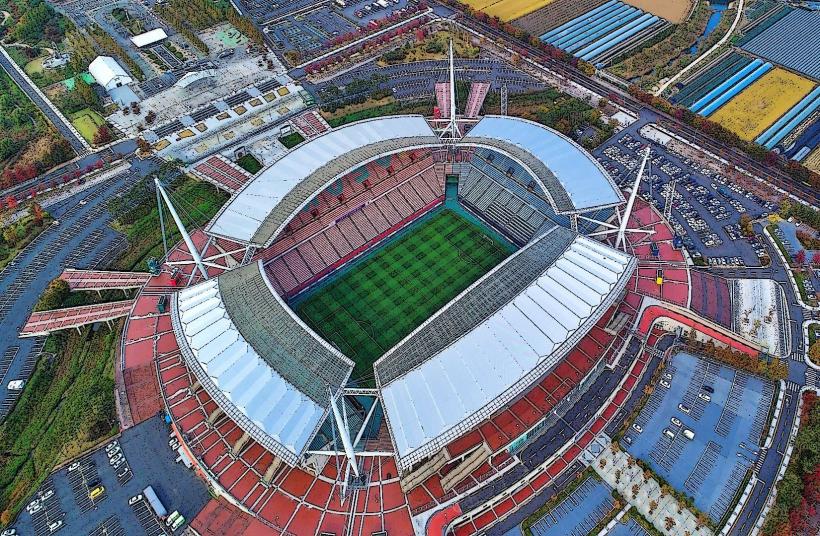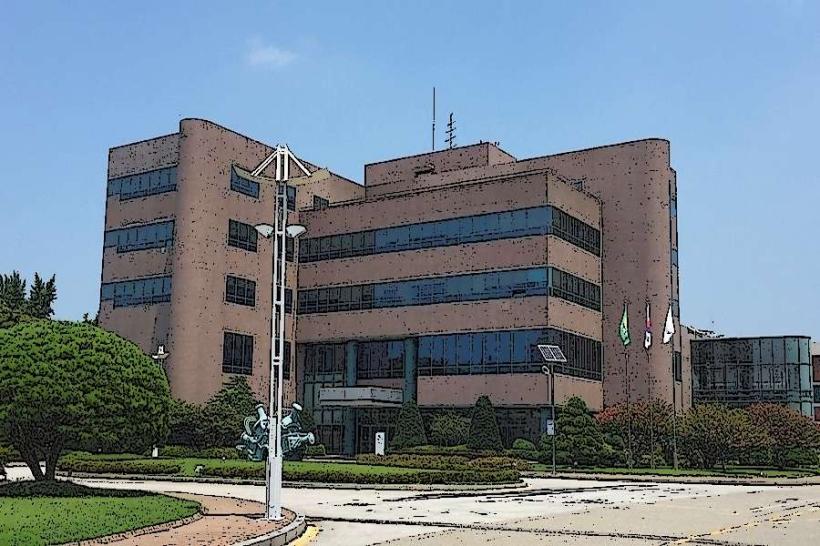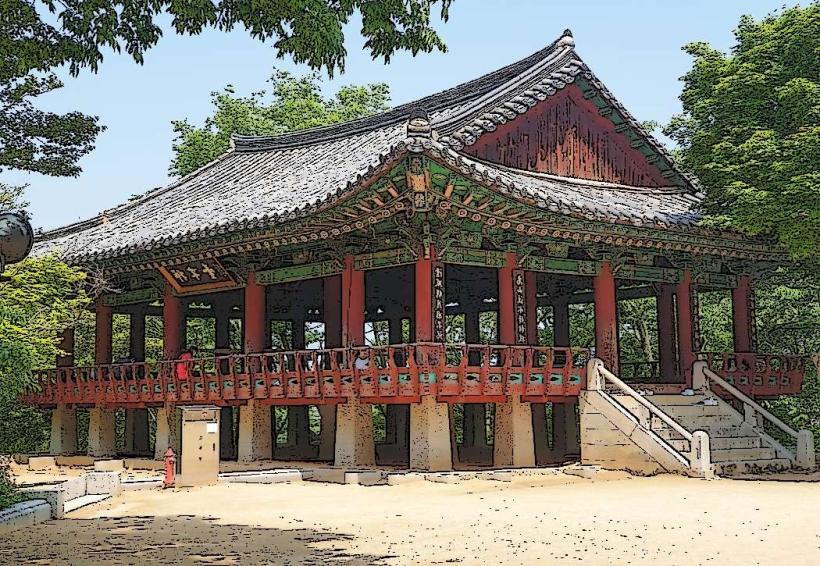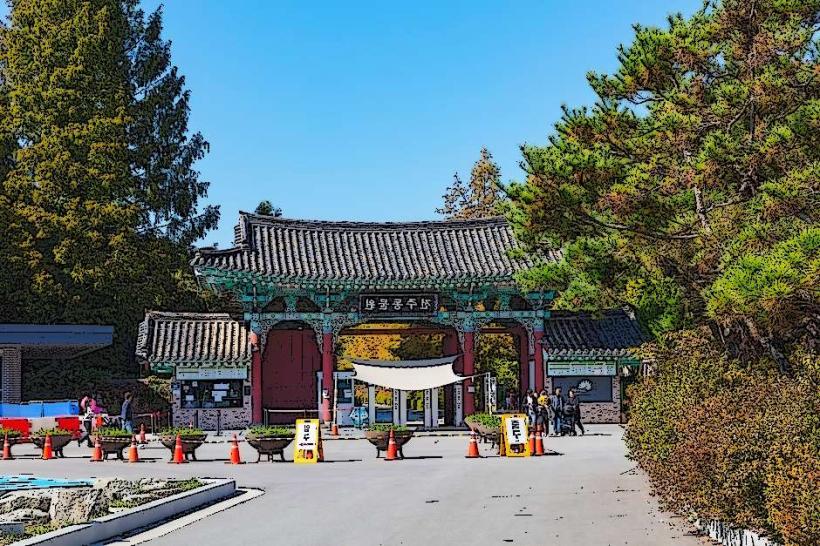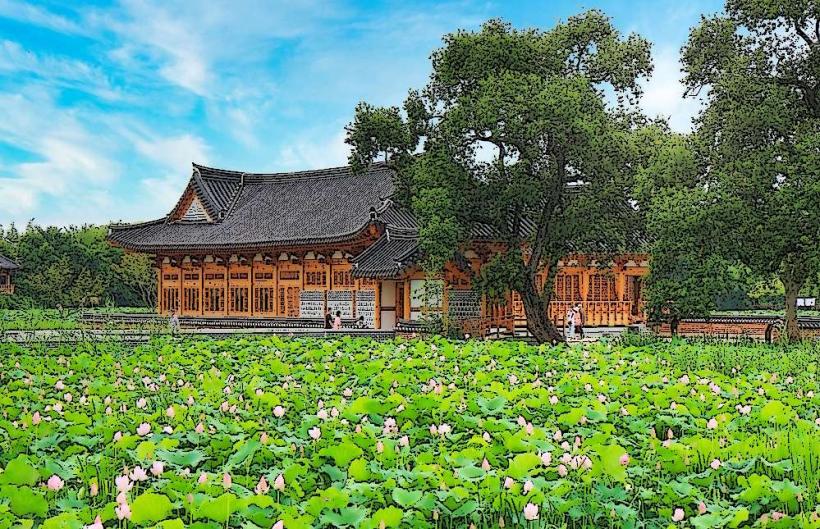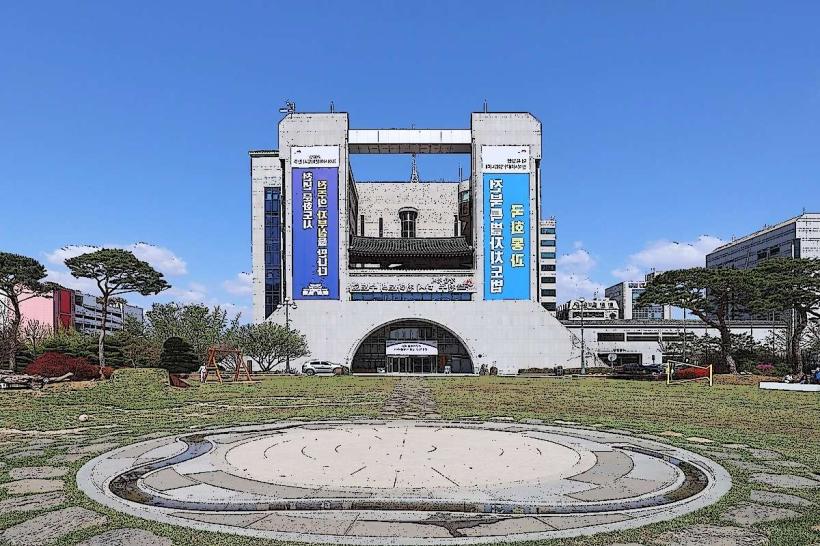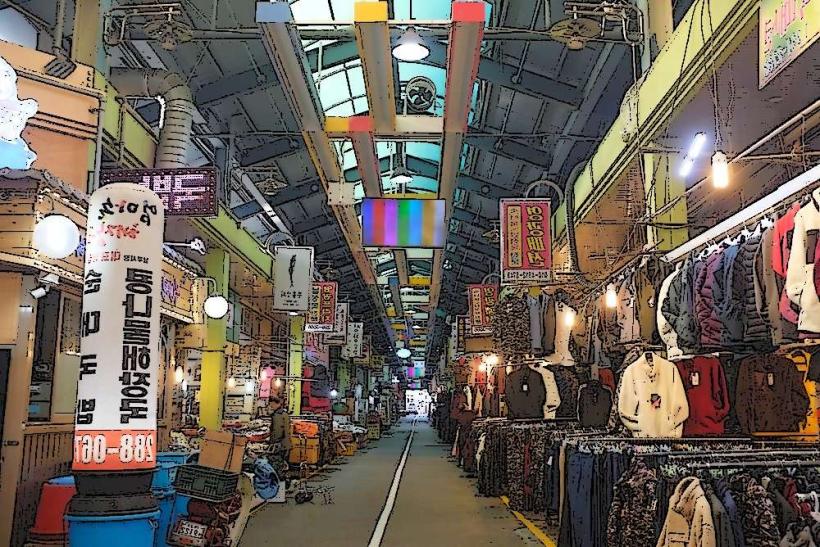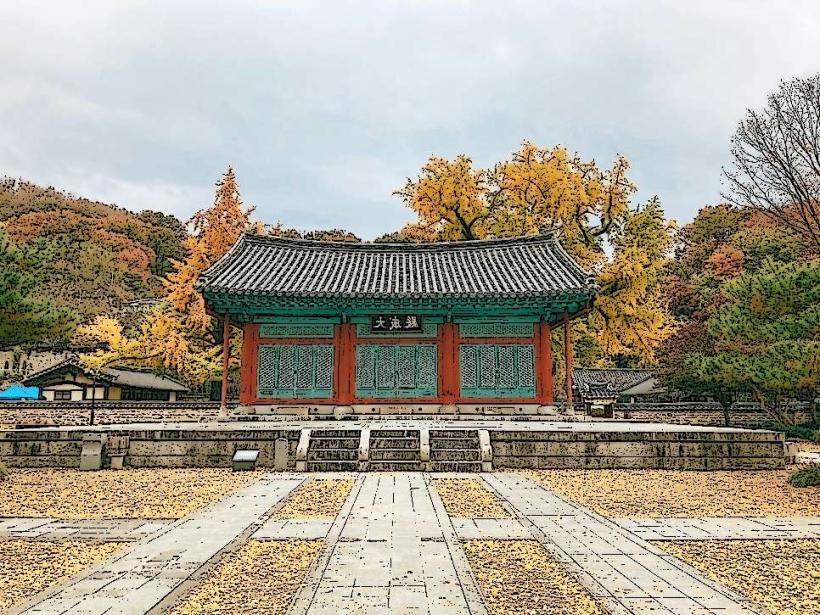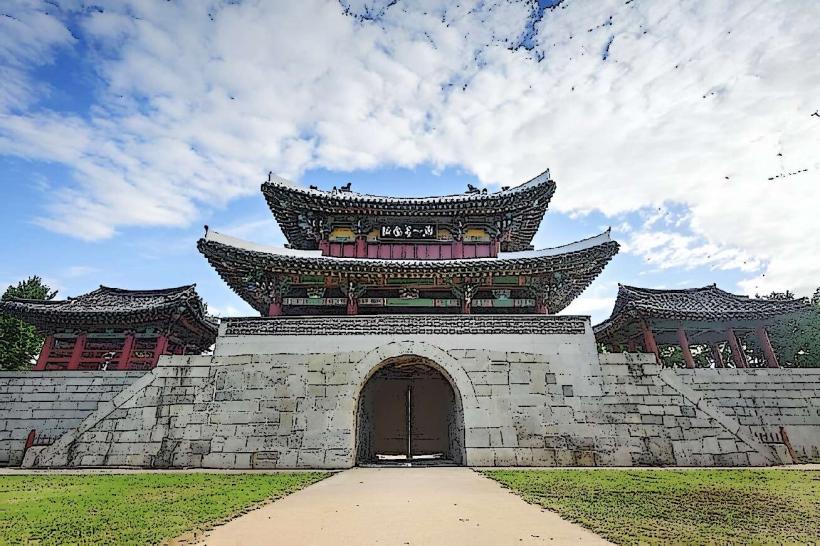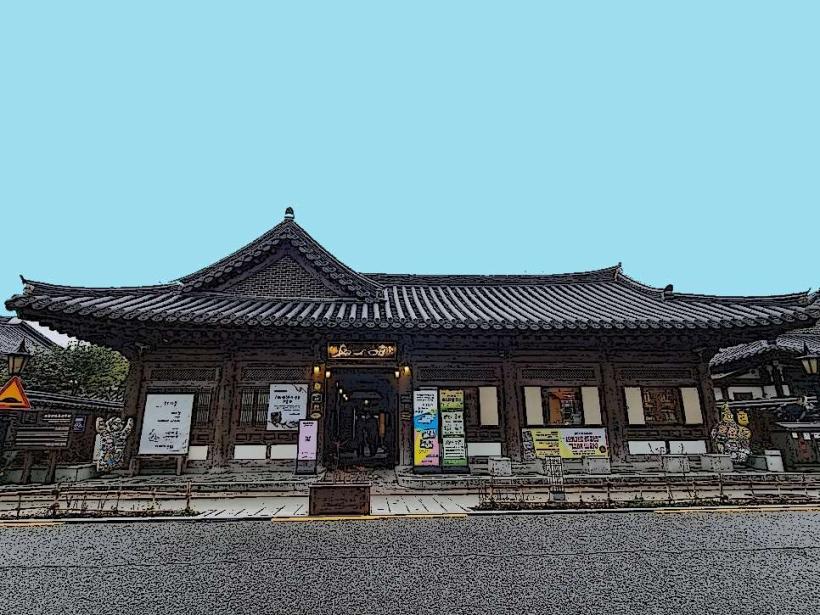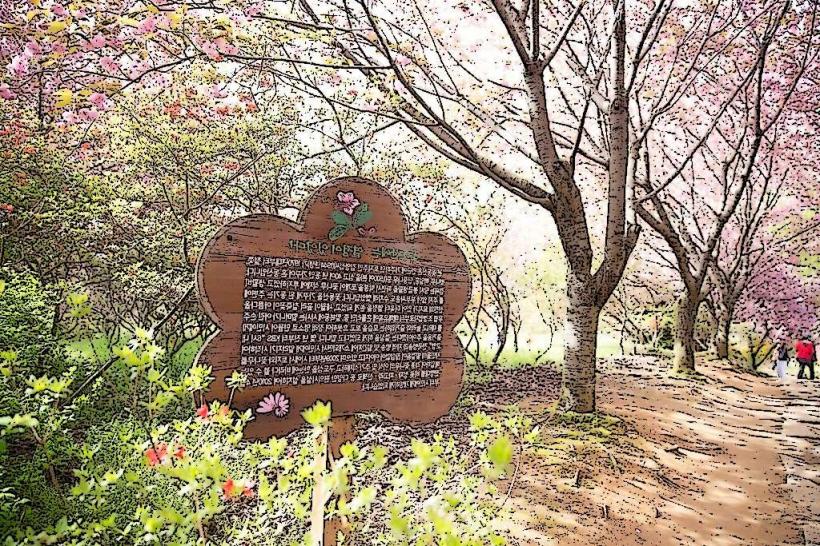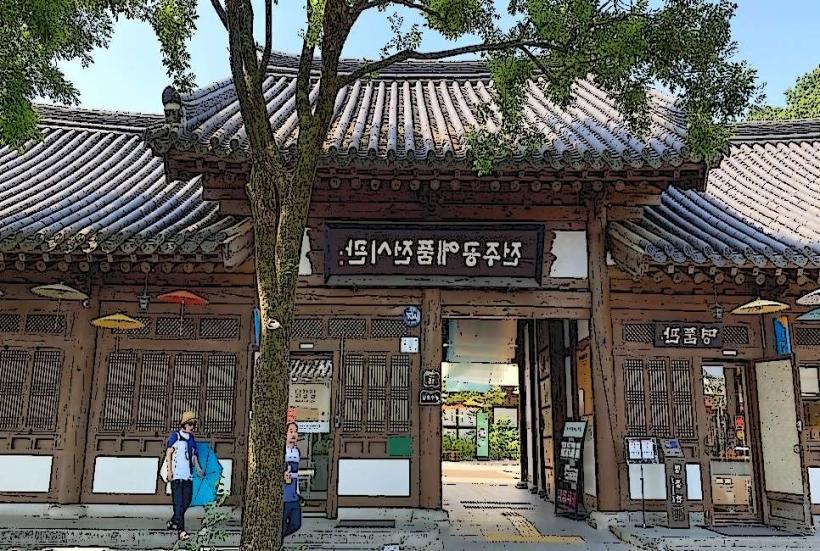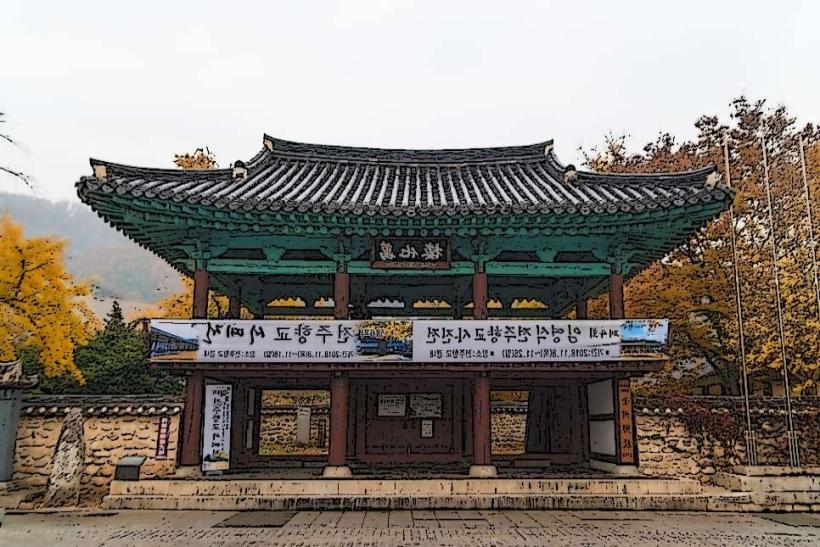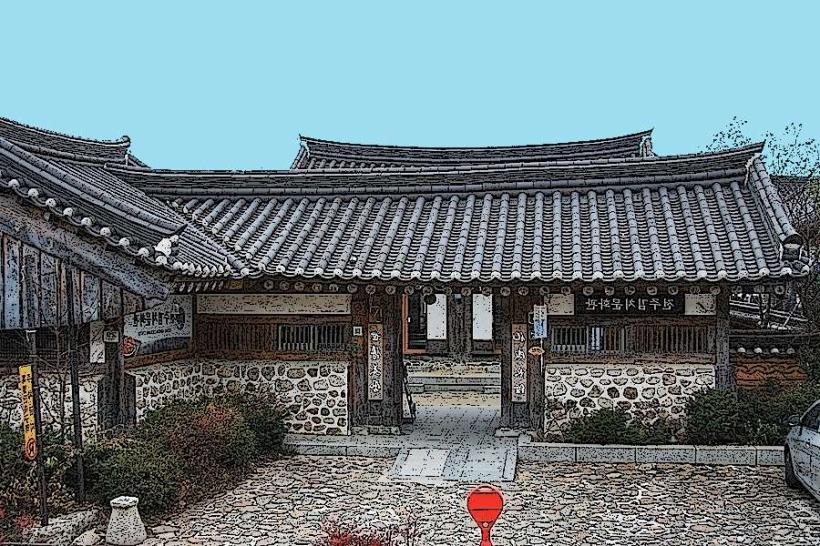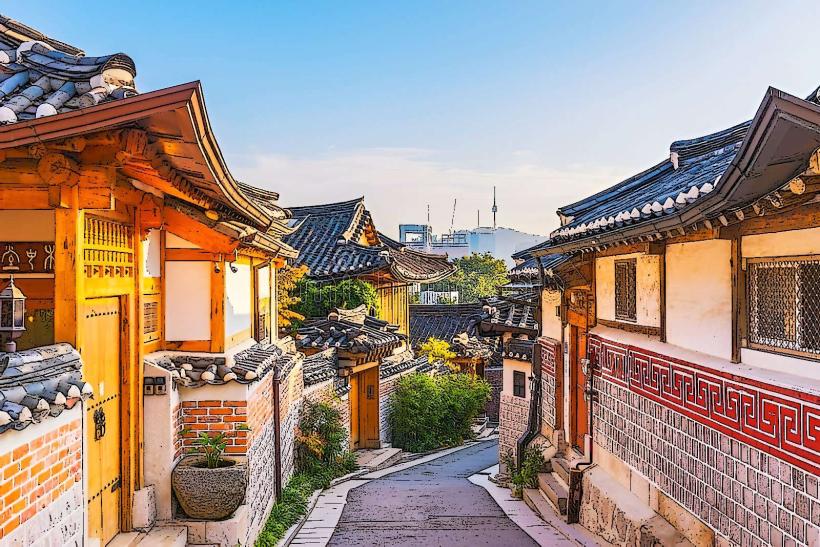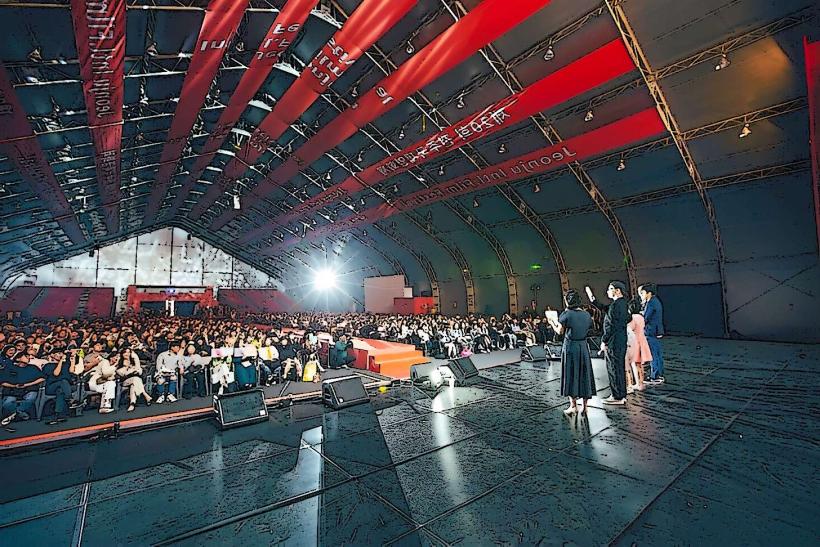Information
Landmark: Jeonju Traditional Culture CenterCity: Jeonju
Country: South Korea
Continent: Asia
Jeonju Traditional Culture Center, Jeonju, South Korea, Asia
The Jeonju Traditional Culture Center is a facility dedicated to preserving and promoting Korean traditional culture, located in Jeonju, South Korea.
It serves as a hub for experiencing various aspects of Korean heritage through exhibitions, performances, and workshops.
Visual Characteristics
The center's architecture incorporates traditional Korean Hanok elements, featuring dark tiled roofs, wooden beams, and white plaster walls. The main building is a two-story structure with a central courtyard. Surrounding buildings are single-story, designed to evoke historical residences. The grounds include landscaped gardens with stone pathways and traditional Korean flora.
Location & Access Logistics
The Jeonju Traditional Culture Center is situated approximately 3 kilometers southwest of Jeonju city center. Access is via local roads, with specific routes including Gyeonggijeon-gil. Parking is available on-site for approximately 50 vehicles. Public transport options include city bus lines 10, 11, and 12, which stop within a 500-meter walk of the center.
Historical & Ecological Origin
The center was established in 2004 to consolidate and expand upon existing efforts to promote Jeonju's cultural heritage. The architectural design is a modern interpretation of traditional Joseon Dynasty building styles, aiming for authenticity in materials and construction techniques. The site itself is part of the broader Jeonju Hanok Village area, which has a long history as a center for scholars and officials.
Key Highlights & Activities
Visitors can observe traditional Korean craft demonstrations, including pottery and paper making. Scheduled performances of traditional music and dance occur daily in the main hall. Workshops are offered for activities such as kimchi making and calligraphy, requiring advance booking. An exhibition hall displays artifacts related to Korean folk traditions and the history of Jeonju.
Infrastructure & Amenities
Restrooms are available within the main building. Shaded areas are provided by covered walkways and the central courtyard's roof structure. Cell phone signal (4G/5G) is generally strong throughout the facility. Food vendors are not present on-site, but numerous restaurants and cafes are located within the adjacent Jeonju Hanok Village.
Best Time to Visit
For optimal lighting for photography of the architecture, visit between 10:00 AM and 2:00 PM. The most pleasant weather for outdoor exploration of the grounds occurs during spring (April-May) and autumn (September-October). Performances are scheduled throughout the day, with specific times posted at the entrance.
Facts & Legends
A unique aspect of the center is its demonstration of the traditional Korean art of hanji (traditional paper) making, a craft historically significant in Jeonju. Local lore suggests that the specific clay used in the pottery demonstrations, sourced from nearby regions, imparts a unique durability and aesthetic to the finished pieces.
Nearby Landmarks
- Jeonju Hanok Village (0.2km North)
- Gyeonggijeon Shrine (0.4km North)
- Jeonju National Museum (1.5km West)
- Omokdae and Imokdae (0.6km North)
- Jaman Mural Village (0.8km Northeast)

